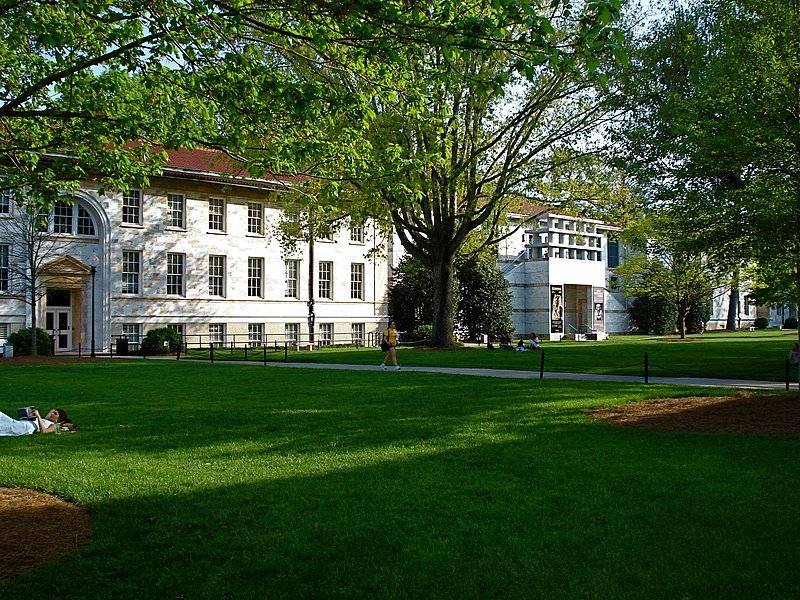BIGGEST COLLEGE-RELATED NEWS OF THE WEEK
ART SCHOOLS SUFFER FROM TOUGH ECONOMIC TIMES AND LOW ENROLLMENT
Columbia College Chicago and the University of the Arts in Philadelphia, two well-respected arts schools, have both come into economic difficulties recently. With just a week’s notice, the University of the Arts sent out a message stating that the school would be closing June 7th, catching students and faculty completely by surprise. The university, home to approximately 1,125 students, had just enrolled next year’s new class. Area universities such as Temple University, Drexel University, and Moore College of Art and Design have all reached out to try and assist current and incoming students with transfer opportunities.
Columbia College Chicago, also with little notice, laid off 70 faculty members and eliminated 32 vacant staff positions due to financial worries and declining enrollment. The concerns of the college were not a secret, though; last month they announced that first-year enrollment was down 46% from last year and transfer deposits down 36%. “The advising office, library, admissions and enrollment, career center and the counseling services office were among the departments affected by layoffs,” said Lillian Gecker, co-membership chair of the Columbia staff union.
HARVARD WILL NO LONGER WEIGH IN ON GLOBAL AFFAIRS
A new policy is being put into place at Harvard, in which the university will no longer share an official opinion on issues that are “not relevant to the core function of the university”. While it will no longer share “statements of empathy” as it did for Ukraine and the attacks on October 7th by Hamas, it is also not becoming “neutral” on global issues, like the University of Chicago. Others, of course, believe that it’s impossible for a school such as Harvard to have true “institutional neutrality”.
FAFSA ISSUES AND CHANGES IN JOB MARKET IMPACT COLLEGE ENROLLMENT
Fewer job postings are listing formal educational requirements as employers have trouble filling positions. Listings with no degree requirements have gone up 4% over the last 4 years. A cascade of problems with the FAFSA, or Free Application for Federal Student Aid, this year, have seen a drop in the number of completed financial aid forms by almost 16%. The worry is that these two issues will have a stalling or even backsliding effect on what had been an increase in college enrollment over the last few years. While the numbers are not back to pre-pandemic rates, they are up 2.5% this spring after decades of decline. Some of the overall decline is due to lower birth rates and fewer students who may be attending college, but the increased price of four-year institutions has meant that the majority of that 2.5% increase is happening in community colleges. People are less willing to take on what can turn into life-long crippling debt just to attend a 4-year university.
WOMEN MAKE “FIRSTS” IN LEADERSHIP ROLES AT TWO UNIVERSITIES
Both Yale University and Winston-Salem State University hired their first female leaders in either school’s history. Dr. Maurie D. McInnis, former head of Stony Brook University, will become the new president of Yale University starting in July. She will be the first permanent female president of the school since its inception in 1701.
The University of North Carolina Board of Governors elected Bonita J. Brown, an attorney, to be the new chancellor of Winston-Salem State University. The HBCU, founded in 1892, is ranked as the number one school in the state for economic and social mobility (by the New York Times and US News & World Report. It is also considered a healthcare education powerhouse in the region. Congratulations to both!
AMERICAN UNIVERSITY ADDS EARLY ACTION
For students starting in the Fall of 2025, American University will offer Early Action application plans alongside their Regular, Early Decision I and Early Decision II plans. Unlike ED, EA is not binding; however, it allows applicants to apply early and get decisions early. This, in turn, suggests that students are interested and that they have done their research. For American University, EA will be due November 1 and EA applicants will receive their decisions by January 31.
BEST ARTICLES OF THE WEEK
Sonya recently reflected that she is so glad she didn’t grow up with social media or a smartphone. The pressure to conform at lightning speed and at such a granular level that apps like Snapchat and “Insta” apply to young people seems like such a daunting and bloody gauntlet to traverse, she explained. And to do it at the age when a person is probably at their most vulnerable and unsure of who they are and what they believe makes it a scarier prospect still.
(P.S. How do you even know if you grew up with social media or a smartphone? It’s not a completely cut-and-dry answer. I attended high school from 1999-2003, so I would think I qualify as having grown up with social media in its earliest forms, like AOL profiles and MySpace. Facebook came out during my freshman year of college, 2003-2004, and my peers were all just starting to get smartphones right around the time of our college graduation. This is on my mind right now because I am in the middle of reading The Anxious Generation, which you will find on our summer reading list soon!)
In any case, we found an interesting article which looks at teens around the country whose parents resisted pressure from the outside and inside the house to give their teen a smartphone, despite some being shown up to four slide deck presentations about the merits of doing so! Some had “dumb” phones for communication, but others didn’t even have that. I know that now it’s almost unimaginable to be out in the world without a smartphone, but this article suggests that their experience shows them to be more independent, more able to problem-solve and more capable of handling being bored and entertaining themselves. One of the more slightly ironic differences is that those without a phone also were able to be more “sociable” and had better coping skills when dealing with the public. Just the opposite seems to be the case for kids addicted to social media!
And staying on the theme of being sociable, dating as a teenager is also quite different now, in the age of smartphones, than it was ‘back in the day”: for better and/or worse. In this article about his son’s first girlfriend, the author talks about the generational differences in how we consume social media versus today’s teens; the impact that has had on attention spans; and ultimately how this has changed how young people communicate, compared to us “olds”!
In the last few posts we have talked about teens and summer jobs (and sometimes their first job) along with helping them navigate this new, adult responsibility. Nothing screams adult responsibility louder than taxes! Sometimes the expected amount of that first glorious paycheck and the reality of learning what net pay is can be stunning. This MarketWatch article shares the importance of talking to your teen about taxes and how this knowledge can lead to better overall personal financial management in the future.
OFFICE HAPPENINGS
Since many of our juniors have finished drafting their Common App (R) personal essays and are now on to their supplemental work, we started putting together our Class of 2025 Supplemental Essay Database this past week!
A number of colleges have already finalized their essay prompts for the coming application cycle, including Georgetown and the University of Georgia. As a reminder, we are vigilant about checking for updated prompts on a nearly-daily basis throughout the summer so that our students can write their essays earlier than the official August 1 release date.
And of course, we are still deep in behind-the-scenes Common App (R) essay edits — just because the juniors are done with their work doesn’t mean we are all done with ours! I say this every year, but there is nothing more exciting to me than the moment when the essay really clicks into place.
Usually, the man responsible for that amazing-ness is none other than Alan, our essay coach who works solely behind the scenes helping those final edits be just a little bit more sparkly than they otherwise would be. We are super lucky to have him on our team!
He has this magical ability to shift a student’s own writing and voice around into different and unexpected ways — it really is an art! I could never do as good of a job as he does.
Have a great rest of your week, everyone!




















